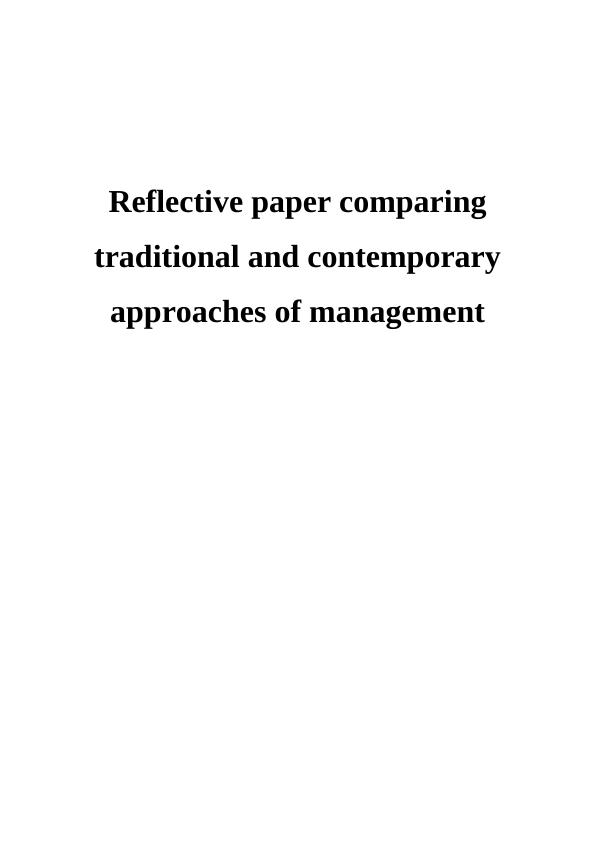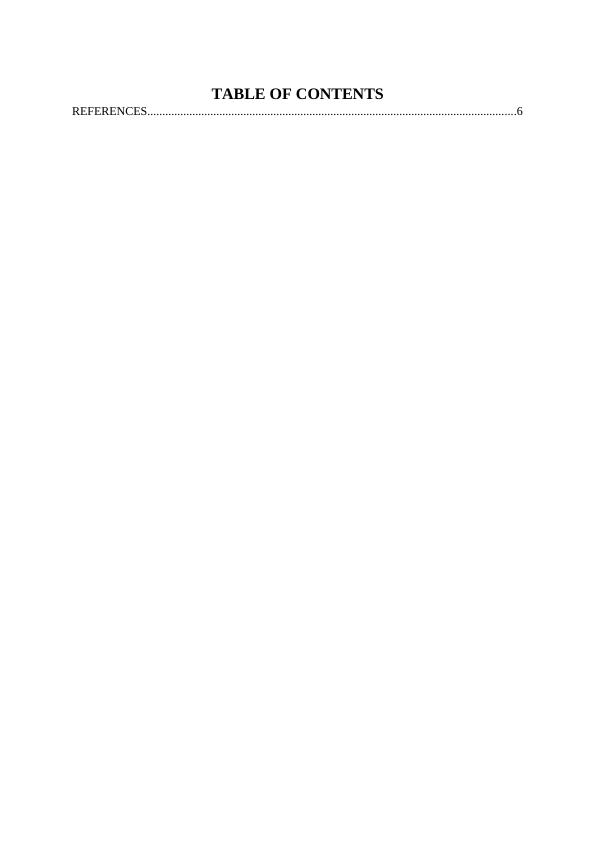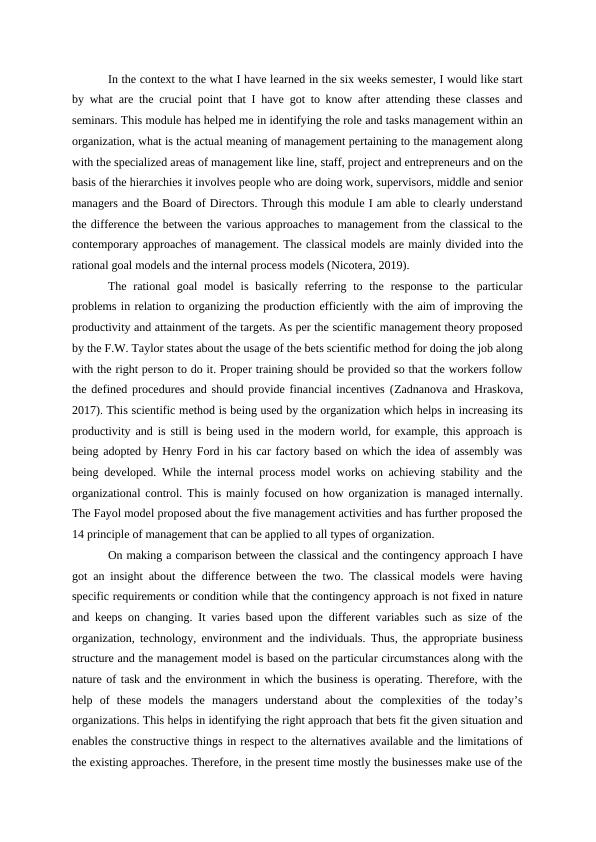Reflective paper comparing traditional and contemporary approaches of management
6 Pages1224 Words46 Views
Added on 2023-01-04
About This Document
Write a short reflective paper based on the content covered in weeks 1-6 and the feedback on the Formative Assignments quizzes in these weeks Word limit 1000 words Use the questions provided to structure your assignment
Reflective paper comparing traditional and contemporary approaches of management
Added on 2023-01-04
ShareRelated Documents
End of preview
Want to access all the pages? Upload your documents or become a member.
Comparing Traditional and Contemporary Approaches of Management
|7
|1358
|77
Principles of Management: A Comparison between Traditional and Contemporary Approaches
|6
|1362
|455
Learning Reflection
|6
|1337
|2
Reflective Paper on Traditional and Contemporary Approaches of Management
|7
|1344
|473
Principles of Management MN4062QA
|7
|1226
|364
Reflective Paper on Traditional and Contemporary Approaches of Management
|7
|1304
|252



